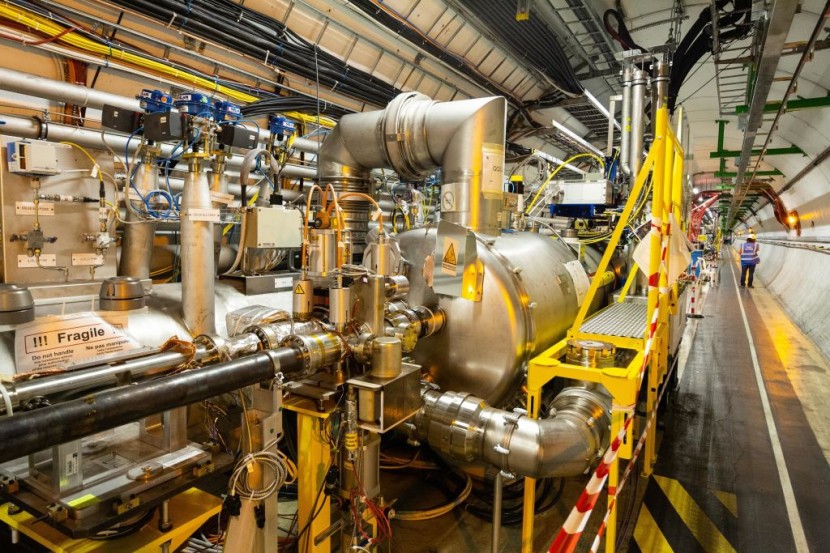
Scientists studying antimatter, which is the opposite of matter, from which stars and planets are made, made a key discovery after finding out that it is also affected by gravity.
Antimatter is a mysterious substance that is believed to have been plentiful when the universe began. Both antimatter and matter were created in equal amounts in the Big Bang, which formed our universe. While matter is found to be everywhere, the opposite substance is notoriously difficult to find.
Scientists Make Key Discovery About Antimatter
The latest study found that the two substances actually respond to gravity in the same way, providing scientists with new information to analyze. Physicists have spent years trying to discover the differences between antimatter and matter as well as their similarities in an effort to explain how the universe came to be.
Finding out that antimatter rose in response to gravity, instead of falling, would have blown apart what scientists know about physics. They have been able to confirm for the first time that atoms inside antimatter fall downwards, as per BBC.
But instead of being a dead end, the discovery actually provides new opportunities for experiences and theories. Scientists are now asking other questions, such as if antimatter falls at the same speed as matter.
At the time when the Big Bang occurred, antimatter and matter should have combined and canceled each other out, leaving nothing but light. However, the fact that this did not happen is one of the great mysteries of physics and uncovering differences between the two substances is key to solving the problem.
Matter somehow overcame antimatter in the first moments of creation. A member of the research team at Cern in Switzerland, Dr. Danielle Hodgkinson, said that finding out how antimatter responds to gravity could be the key to figuring this out.
Falling Just Like Matter
Joel Fajans of the University of California, Berkeley, said, "The bottom line is that there's no free lunch, and we're not going to be able to levitate using antimatter." He was part of an international team known as the Antihydrogen Laser Physics Apparatus collaboration, also known as ALPHA, according to the New York Times.
It was led by Jeffrey Hangst, who is a particle physicist at Aarhus University in Denmark. Fajans and his colleagues assembled roughly 100 anti-atoms of hydrogen and suspended them in a magnetic field. When this field was slowly reduced, the antihydrogen atoms drifted down like maple leaves fall in October and had the same rate of downward acceleration as regular atoms.
Hangst said that half of the universe is missing, referring to how there is almost no antimatter to be found. He added that in principle, we can build a universe with only antimatter and it would work the same way as our current universe.
He compared the recent experiment to Galileo's famous 16th-century demonstration that two balls of different mass dropped from the Leaning Tower of Pisa would fall at the same rate. ALPHA constructed a 25-centimeter-long bottle that was placed on its end and had magnets at the top and bottom to conduct the experiment in, said Yahoo News.
Related Article : NASA's New UFO Hunter Weapon Unveiled-What Is This Technology?
© 2025 HNGN, All rights reserved. Do not reproduce without permission.








